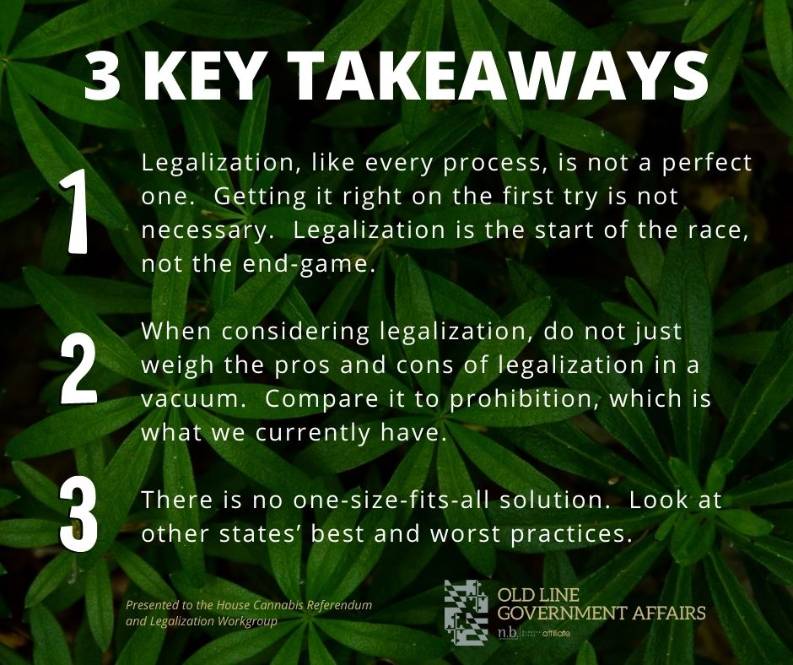As the Old Line Government Affairs team continues to monitor developments around cannabis in Maryland, the House Cannabis Referendum and Legalization Workgroup shared details regarding the current status of legalization across the U.S. As of now, 18 states, 2 territories and DC have legalized small amounts of cannabis for recreational use. Maryland lawmakers are looking at all of those states for perspective and lessons learned.

Presentation from Dr. John Hudak, Deputy Director Center for Public Management and Senior Fellow of Government Studies at the Brookings Institution
Cannabis Legalization Experience in the US 2012-Present
- States that have legalized for adult use: WA, OR, CA, NV, AZ, NM, MT, CO, AK, IL, MI, NY, VT,ME, MA, NJ
- States that have legalized for medical use: UT, ND, MN, IA, MO, AR, OK, LA, AL, FL, OH, WV, PA, MD, NH, DE, HI
- Statutes pending: SD, MS
- Cannabis legalization is happening at a very fast pace. Since 2012, 18 states have voted to legalize
- Why does a state legalize adult-use cannabis?
- Individual freedom
- See regulation as a means of advancing product safety
- Black market displacement – if you produce it legally, tax it and regulate it, it will begin to displace illegal dealers
- Reverse the harmful effects of the war on drugs
- Cannabis arrests in Maryland
- In 2019, nearly 15k arrests for cannabis possession
- Black Marylanders are 2.2 times more likely to be arrested for these offenses than white
- Address racial justice inequity
- Business opportunity
- Tax revenue – though this is a false promise. The amount is not as significant as one might think.
- Product safety and potency have been really big issues when passing regulations
- Continue focus on preventing youth use
Secondary and tertiary industries that benefit from cannabis legalization:
- Building dispensaries
- Legal services
- Accounting
- 100s of thousands of people being employed – younger, diverse, represent the types of groups that struggle in the labor market
- Taxes that will come into the state coffers instead of into the black market
- Increase in dealing with racial justice inequities:
- Expungement of low-level nonviolent cannabis related offenses
- Providing for ownership and investment opportunities for people of color
- Some states have banned people with past related records but now are seeing a benefit in including those with such detailed knowledge of the industry
- Investment in the communities most impacted by the war on drugs – education, community centers, workforce training, childcare




